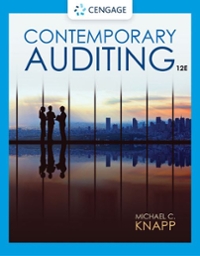Michael Woodford became the first foreign-born chief executive of a Nikkei 2252 firm when he was appointed
Question:
Michael Woodford became the first foreign-born chief executive of a Nikkei 2252 firm when he was appointed Olympus's CEO. Being selected as Olympus's CEO was the culmination of the British citizen's 30-year career with the company. Woodford was born into a working-class family in 1960 in a small city in central England. At age seven, after his parents divorced, Woodford moved to nearby Liverpool, where he and his mother and two siblings lived with his maternal grandparents in a small house that lacked indoor plumbing. To help support his family, Woodford went to work doing various odd jobs after school. Eventually, the young man found his true calling: sales. As a teenager, Woodford sold snacks to classmates from his school locker between classes. A few years later, he financed his college degree in business by working as a salesman for the large British company Cadbury Schweppes.
At age 21, Woodford accepted an entry-level position as a salesman with a British subsidiary of Olympus that sold medical equipment-although best known for its digital cameras, Olympus has long been the dominant company in the endoscopic segment of the medical equipment industry. Over the next decade, the outgoing and hard-working Brit worked his way up the company's employment hierarchy. In his early 30s, Woodford became friends with Kikukawa, a fast-track junior executive with Olympus. Kikukawa was appointed Olympus's CEO in 2001 and seven years later chose Woodford to oversee Olympus's foreign operations.
In early 2011, Kikukawa promoted Woodford to chief operating officer (COO).
At the time, Olympus was struggling financially because the growing popularity of smartphones was undercutting sales of the company's digital cameras. Woodford immediately transferred to Olympus's Tokyo headquarters and began an intensive study of the company's financial affairs as a prelude to developing a comprehensive turnaround plan to revitalize its operations.
Woodford soon uncovered a series of large and unusual transactions that included several acquisitions unrelated to the company's two primary lines of business. Those acquisitions included the purchase of a mail-order cosmetics company and a manufacturer of microwave ovens. Woodford could not understand why Olympus would purchase companies that had no connection to the company's other lines of business.
More troubling to Woodford was that by any conventional standard, Olympus had paid significantly more than the companies were worth. The gross overpayments for the companies suggested to Woodford that Olympus executives were covertly conveying corporate assets to third parties, a serious violation of their fiduciary responsibilities to company stockholders.
Olympus had also recently purchased a well-known British medical equipment manufacturer. Woodford was shocked when he learned that Olympus had paid a nearly $700 million fee to an obscure investment advisory firm in the Cayman Islands that had supposedly brokered the deal. That amount represented one-third of the total cost of the acquisition. Woodford knew that investment advisory firms typically receive a fee of approximately one percent of the value of an M&A (merger and acquisition) transaction they arrange, which meant the Cayman Islands firm had been paid a fee 30 times greater than normal.
Questions
1. In both Japan and the United States, external auditors have frequently been accused of failing to maintain a proper degree of independence from their clients. What measures have and should be taken to promote the independence of auditors from their clients?
2. What responsibility do auditors have in the United States to determine whether or not "related parties" exist for a given audit client? What types of audit procedures should be applied to related party transactions?
3. Michael Woodford pointed out correctly that he had to sign the "letter of representations" provided to Olympus's independent auditors. What is the nature and purpose of a letter of representations? Comment on the quality or strength of the audit evidence yielded by a letter of representations.
4. In the United States, which audit firm has the responsibility for initiating predecessor-successor auditor communications? Briefly summarize the information a successor auditor should obtain from a predecessor auditor under U.S. auditing standards.
5. Cultural norms and nuances affect the operations of large companies worldwide. Identify examples of distinctive cultural norms and nuances specific to three countries or regions of the world. Explain how those cultural traits likely impact the performance of independent audits.
6. In both Japan and the United States, a small number of accounting firms audit the great majority of large public companies. Identify the advantages and disadvantages of this oligopolistic market structure for independent audit services.
Step by Step Answer:






